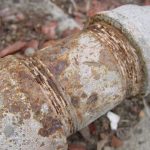Of course, many of us have our preferred bathing habits for cleanliness and relaxation. For most of us, showers are better for quick daily use, and baths are left for more leisurely times in the evening or at the weekend. One aspect that has become more interesting to green-minded people in recent years is the impact of bathing on water conservation. In this article, we will look at the average amounts of water used during a shower or bath and present some simple water saving tips.
Every Situation Will be Different
First, it’s important to understand that every shower or bath situation will be slightly different. Some people like to listen to music in the shower and may stay in longer until a favorite song finishes. Some bathtubs may be larger than others and require more water to fill them sufficiently. Some showerheads are better at distributing and conserving water than others. For this reason, we will have to work on very broad averages to get any kind of benchmark to work with. So if the figures here seem wrong to you, it may be that you are using more or less water than this broad national average.
Shower Water Use
An average showerhead will dispense around 2.5 gallons of water each and every minute. Of course, this means that the length of the shower taken will have a dramatic effect on how much water is used during the shower.
Bathtub Water Use
An average bathtub has a capacity of roughly 35 gallons of water, but very few people fill their baths entirely. For this reason, it’s safe to assume that most people would use around 25 gallons of water to allow for water displacement when they get in.
So Which is More Wasteful?
Initially, it may appear that taking a bath uses far more water than a shower would. This changes if the average shower lasts longer than 10 minutes, because the amount of water used will then exceed the 25 gallons of water used to fill the bathtub. So a shower less than 10 minutes long will be less wasteful than taking an average bath.
Some Water Conservation Tips
Following on from the conclusion above, the best way to conserve water is to take a shorter shower. It may be a good idea to restrict a relaxing bath to special occasions or at the weekend. If you want to take a bath, try to use less water and avoid overfilling the tub.
If you want to save even more water when taking a shower consider switching out your current shower head for a more efficient low flow model. These can cut water usage down one gallon of water per minute and still provide adequate water pressure. This will allow you to take longer showers, but obviously, any water savings made will still be negated if the shower lasts too long.
Finally, take some time to evaluate your
plumbing situation to see if any improvement or repair are required. Leaky pipes or faucets can waste a lot of water, and they can be hidden behind you plumbing fixtures and walls. Eventually, they may even cause extensive water damage that will be expensive to repair.
By Giovanni Longo President Flood Brothers Plumbing
Giovanni Longo is a 3rd generation master plumber who has been practicing his craft and trade in the greater Los Angeles area for well over a decade and a half. A plumbing and hydraulics-engineering innovator, Giovanni’s particular world-class expertise focuses on dealing with challenging sewer system designs as well as resolving complex commercial and residential draining issues. As a certified Flood Mitigation expert, he is also well versed in a wide variety of water damage and remediation solution.





